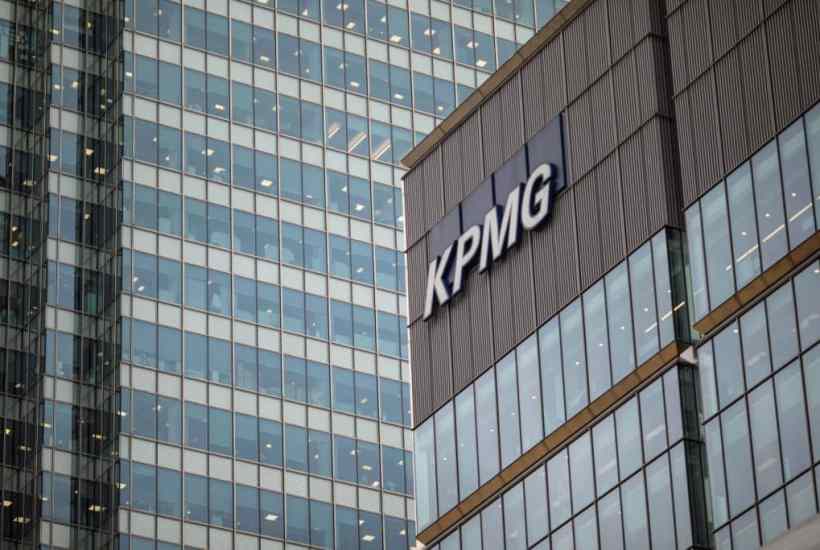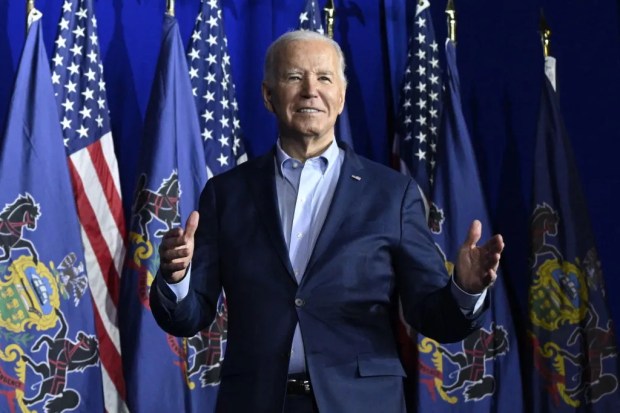It has been exactly 20 years since the Enron scandal upended the reputation of global accountancy firms, leading to the downfall of both the company – one of the largest in US history up to that point – and Arthur Andersen, one of the ‘Big Eight’ accounting firms.
Enron’s collapse provoked an avalanche of regulation, ostensibly to reduce the chances of similar accounting fraud repeating itself. In the United States this effort was spearheaded by the 2002 Sarbanes–Oxley Act, while the European Union’s 2006 Auditing Directive followed scandals like the 2003 collapse of Italian dairy giant Parmalat.
In reality, these supposedly stringent regulations were crafted under considerable influence from the big accountancy firms themselves, which have since consolidated into the ‘Big Four’.
As the Belgian chartered accountant Peter Vandewalle wrote in 2010: ‘In fact, the working methods of the four big accountancy firms (Deloitte, KPMG, Ernst & Young and PriceWaterhouseCoopers) have been largely enshrined into legislation, despite the fact their approach failed when it came to Enron [and] Parmalat.’
As Vandewalle laid out over a decade ago, the types of rules enshrined by the EU in 2006 – still in force in the UK – primarily benefited the big players in the accountancy market, who can marshal far greater resources to handle compliance obligations than smaller competitors.
More recent scandals impacting all four major consulting giants have helped demonstrate his point, making it painfully clear that despite all the extra regulatory burdens, the EU, UK, and US have still not figured out how to effectively combat large-scale accounting fraud.
Take, for example, the Wirecard scandal in Germany. While the Financial Times was raising questions about the company’s balance sheet as early as 2015, the DAX-listed German payment processor was able to continue engaging in suspected fake transactions and potentially fraudulent accounting activities until it finally went bankrupt in June 2020.
Who was one of the key players in what ultimately became post-war Germany’s biggest financial scandal? Auditing firm EY, which took years to identify the scale of fraud at the company.
Martin Wambach, the special investigator for a German parliamentary inquiry into the scandal, put together a damning report on EY’s work which was leaked to the press this May. He stated that the firm had violated numerous accounting standards over the course of several years.
Ironically, the firm that ultimately revealed the scale of financial discrepancies at Wirecard – EY’s rival KPMG – has itself been caught up in scandal, with the collapse of the Dubai-based private equity firm Abraaj in 2018.
With a revolving door of executives and a web of conflicting interests between Abraaj and KPMG’s Dubai affiliate, the auditing firm failed to prevent Abraaj’s senior leadership from misappropriating hundreds of millions of dollars from investors such as the Bill & Melinda Gates Foundation.
After the Abraaj scandal (and the scale of KPMG’s involvement) finally came to light, the FT dubbed the fund’s collapse a ‘wake-up call’ for the advisory industry. Given that KPMG has also been closely involved in numerous other scandals, from Guptagate in South Africa to 1MDB (alongside Deloitte) in Malaysia, it’s not clear how many more wake-up calls these industry heavyweights need.
Even as each new scandal reveals how conflicts of interest between Big Four accounting firms and the clients who pay them fails investors and helps disguise corporate fraud, attempts by governments to solve the problem through more and stricter regulation invariably end up consolidating the oligopoly of the ‘Big Four’.
Rather than address the core issue at play – a lack of competition – excessive regulation and compliance requirements have turned into a legal barrier preventing new competitors from entering the market and challenging the stranglehold of these companies. With no fear of losing out on clients who only have four firms to choose from, these companies operate free from market pressure that might otherwise induce them to address their poor performance.
On top of distorting the market, these same governments also effectively subsidise the Big Four consulting firms by handing out government contracts only they can realistically compete for. As far back as 2006, veteran consultant David Craig accused the New Labour government of ‘plundering the public sector’ to give ‘vast amounts of taxpayers’ money to management and IT systems consultants.’
Unfortunately, not only have Conservative governments since then failed to reverse this trend, but the Covid crisis has instead kicked it into overdrive. The UK government more than doubled its spending on consultants since last year, with nearly half of the £2.5 billion in contracts it has shelled out since the start of the pandemic going to the Big Four.
As in any other sector, these companies cannot necessarily be blamed for taking advantage of market distortions governments have put into place with their competition-killing regulatory frameworks and their profligate spending on subsidies.
To fix the problem, lawmakers in the UK, as well as in the EU and the US, need to lift the barriers that keep new competitors out of the consulting and auditing markets, forcing the companies currently dominating the industry to win their contracts on the basis of merit, rather than by default.
Got something to add? Join the discussion and comment below.
Get 10 issues for just $10
Subscribe to The Spectator Australia today for the next 10 magazine issues, plus full online access, for just $10.




















Comments
Don't miss out
Join the conversation with other Spectator Australia readers. Subscribe to leave a comment.
SUBSCRIBEAlready a subscriber? Log in